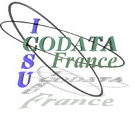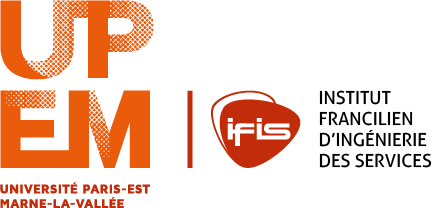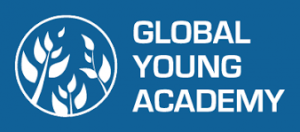This document provides a quick and accessible list of CODATA activities, deliverables and impact from the past year. It then highlights some important upcoming activities and events for 2019: https://doi.org/10.5281/
The CODATA Prospectus: Strategy and Achievement, 2015-2018 summarises the most important activities, deliverables and impacts over that period: https://doi.org/10.5281/zenodo.2559274.
Strategic Priority Area 1: Data Policy
The CODATA International Data Policy Committee has been reformed and invigorated. Under the leadership of Paul Uhlir, the Committee now boasts participation from a team of global experts. In 2018, the Committee explored a number of key policy areas, establishing sub-groups for the following topics:
- Upstream-Downstream: Non-Profit Research Data and Commercial Innovation;
- Data Diplomacy
- Model Data Policy Training Module
- Landscape Survey and Good Practice in Data Policies
Reports, White Papers or scholarly articles, as appropriate will be the major outputs from these groups. In 2019, the Committee will also deliver the following:
- The creation of the University of Arizona – CODATA Center of Excellence in Data for Society (formal announcement to follow)
- International Workshop on Implementing Open Research Data Policy and Practice, Beijing, China, 16-17 September 2019
- 20-Year Review of the Global Biodiversity Information Facility (GBIF)
Other important data policy related contributions of 2018 were:
- Turning FAIR into Reality https://doi.org/10.2777/1524, European Commission Expert Group Report, chaired by Simon Hodson, Executive Director, CODATA.
- SA-EU Open Science Dialogue Report https://doi.org/10.5281/zenodo.2559469, Report of the SA-EU Dialogue, Simon Hodson, Executive Director, CODATA, was a member of the Expert Task Group.
Strategic Priority Area 2: Frontiers of Data Science
2018 saw a significant milestone in the history of science when the General Conference of the International Bureau of Weights and Measures approved the redefinition of four base units of the International System of Units (SI) on values determined by the work of the CODATA Task Group on Fundamental Physical Constants.
The CODATA Data Science Journal continued its renaissance with rapidly growing citations and impact. Two notable new Special Collections include Research Data Alliance Results and papers from the Göttingen-CODATA RDM Symposium 2018, which took place in March 2018.
International Data Week 2018, which took place in Gaborone, Botswana, 5-8 November, organized in partnership with the Research Data Alliance, the ISC World Data System and the African Open Science Platform was a major success with 850 participants from around the globe. IDW combines SciDataCon with the RDA Plenary. Papers from the conference will appear in the CODATA Data Science Journal.
The major data science activity in 2018 has been the piloting of the Data Integration Initiative, which addresses the fundamental challenge of data interoperability for major, global, interdisciplinary research questions. In 2018, the initiative advanced with three pilot case studies, examining these issues in the context of infectious diseases, resilient cities and disaster risk reduction. Major outputs include:
- Data Integration Initiative: Planning Document https://doi.org/10.5281/zenodo.1319525
- CODATA Workshop on Advancing Interdisciplinary Global Challenges Research Through Data Integration, CNIC, Beijing, 30-31 July 2018
- CODATA-DDI Workshop: Interoperability of Metadata Standards in Cross-Domain Science, Health, and Social Science Applications, Schloss Dagstuhl – Leibniz Center for Informatics, October 1-5, 2018
The event held at the Schloss Dagstuhl in partnership with the Data Documentation Initiative was particularly important in advancing the initiative’s approach and it will result in a series of articles about the pilot case studies and the data challenges involved. CODATA is preparing for consideration by the International Science Council, a proposal for a major flagship programme to address the challenge for data interoperability and integration for interdisciplinary research.
Strategic Priority Area 3: Capacity Building and Data Skills Training
The African Open Science Platform project addresses a number of areas essential to building capacity in the use of data and Open Science. Information on the project’s activities can be found at http://africanopenscience.org.za/. Two stakeholder and strategy workshops (March and September 2018) led to the launch of the Vision and Strategy for the African Open Science Platform https://doi.org/10.5281/zenodo.2222418 for the African Open Science Platform at Science Forum South Africa, in a presentation by co-chair Khotso Mokhele. A founding members’ meeting will be hosted at the Biblioteca Alexandrina later in 2019.
The CODATA-RDA Schools of Research Data Science have continued expanding: in 2018 schools were held in Brisbane, Australia (June; short version); Trieste, Italy (August; foundational school and advanced workshops); Kigali, Rwanda (October; foundational school) and São Paulo, Brazil (December; foundational school). For 2019, Data Schools are planned for Addis Ababa, Ethiopia (July), Trieste (August), Kigali (October), San José, Costa Rica (December) and Abuja, Nigeria (TBC). Negotiations are underway with hosts for 2020 and, resources permitting, that year could see as many as twelve schools.
A video about the Data Schools initiative can be watched at https://vimeo.com/299263596; be sure to follow the CODATA website, lists and social media for announcements of application deadlines.
Building on this work, CODATA is a partner in the European Commission funded FAIRsFAIR project, playing a major role in the development of virtual competence centres for data skills. CODATA is also leading the GO FAIR Training Frameworks Implementation Network which will leverage these activities to 1) refine a curriculum framework for data science and data stewardship; 2) develop a train-the-trainer programme; and 3) design a mechanism for endorsement and certification of training activities.
31st CODATA General Assembly (2018)
The 31st CODATA General Assembly was held at the University of Botswana, Gaborone, Botswana on 9-10 November 2018. The report and other materials from the General Assembly may be consulted here http://www.codata.org/events/general-assembly/general-assembly-2018
The General Assembly elected Barend Mons as President and a new Executive Committee. Eight Task Groups were approved. Also significant was that the General Assembly approved revisions to the CODATA Constitution designed to encourage organizations of various sorts to become CODATA members and to allow CODATA to function in a more effective, modern way.
Major Events for 2019
In addition to the activities noted above, CODATA will convene two major conferences in 2019.
CODATA-Drexel Workshop on FAIR and Responsible Research Data Management, 31 March-1 April will take place as a collocated event to the 13th RDA Plenary Meeting in Philadelphia, USA. Like its predecessor in Göttingen, the workshop will feature invited talks and selected presentation on matters relating to FAIR and Responsible RDM. It will result in a Special Collection of the Data Science Journal. The deadline for papers is 18 February: http://www.codata.org/events/conferences/drexel-metadata-research-centre-and-codata-workshop
CODATA 2019: Towards next-generation data-driven science: policies, practices and platforms, 18-19 September 2019 in Beijing, China: https://conference.codata.org/CODATA_2019/
The Call for Sessions has been released with a deadline of 15 April 2019.
The conference will follow a high-level workshop, 16-17 September 2019, on ‘Implementing Open Research Data Policy and Practice’ that will examine such challenges in China and elsewhere in the light of the emergence of data policies and in particular the China State Council’s Notice on ‘Measures for Managing Scientific Data’.

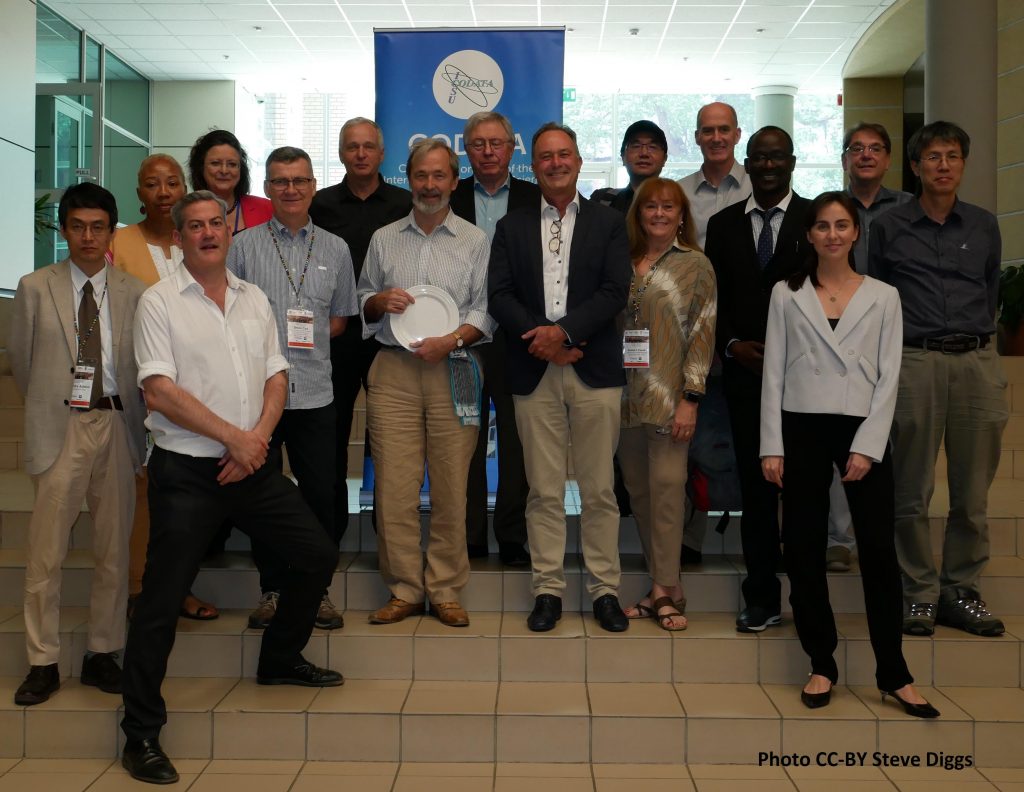
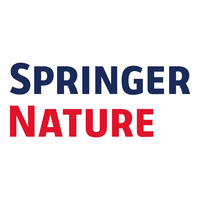
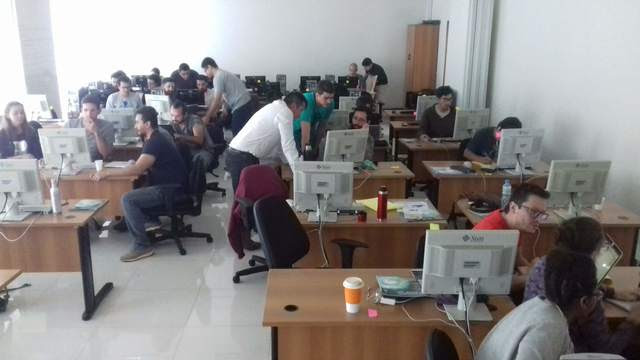
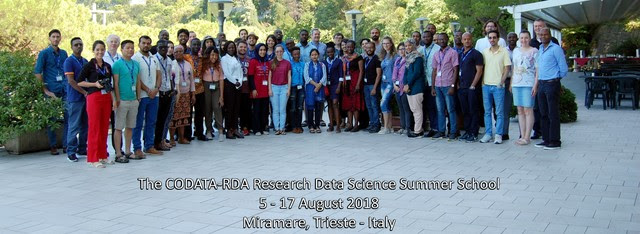
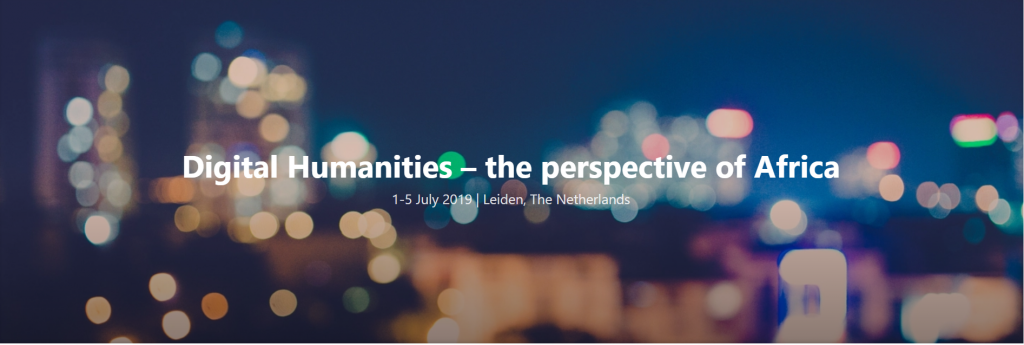
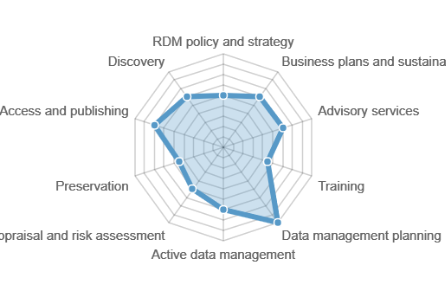 Institutions now have a new means at their disposal to aid them in assessing their research data management initiatives, the Evaluating RDM Tool.
Institutions now have a new means at their disposal to aid them in assessing their research data management initiatives, the Evaluating RDM Tool.
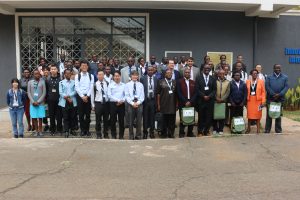 Data visualization uses uncomplicated language to simplify things into concepts that can be easily grasped in graphical format enabling easy understanding. It also can provide insight and ability to understand cross-cutting complex issues and identify patterns to inform formation of successful decision making in terms of strategies and solutions. Prior to the use of the current formal written language, pictures (a form of visualization) were the key medium for sharing history, plans and ideas. Recognising the immense importance of data visualization, CODATA Kenya and the ICT centre of Open Data (iCEOD) under the leadership of its Director Prof. Muliaro Wafula in Jomo Kenyatta University of Agriculture and Technology, who is also the Chair of CODATA Kenya and an elected member of the CODATA International Executive Committee, organised the first Data, Information and Scientific Visualization Symposium in Afriuca that was held from 20-21 August 2018 in Nairobi, Kenya.
Data visualization uses uncomplicated language to simplify things into concepts that can be easily grasped in graphical format enabling easy understanding. It also can provide insight and ability to understand cross-cutting complex issues and identify patterns to inform formation of successful decision making in terms of strategies and solutions. Prior to the use of the current formal written language, pictures (a form of visualization) were the key medium for sharing history, plans and ideas. Recognising the immense importance of data visualization, CODATA Kenya and the ICT centre of Open Data (iCEOD) under the leadership of its Director Prof. Muliaro Wafula in Jomo Kenyatta University of Agriculture and Technology, who is also the Chair of CODATA Kenya and an elected member of the CODATA International Executive Committee, organised the first Data, Information and Scientific Visualization Symposium in Afriuca that was held from 20-21 August 2018 in Nairobi, Kenya.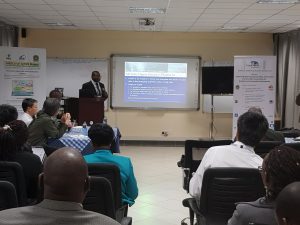
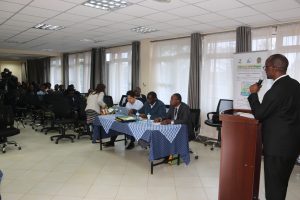
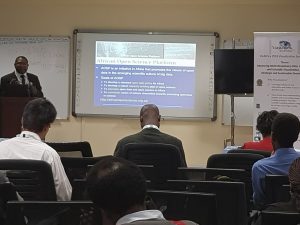
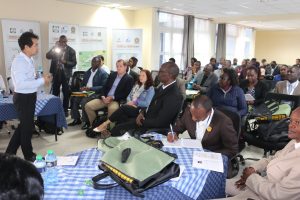 Prof. Xiaoru Yuan, from the Peking University in China gave a keynote speech titled ‘Data visualization for Everyone’ which demonstrated how visualization is in the middle of technology and humans. He referred to data visualization conferences held in Kyoto, Beijing and now Nairobi to emphasize how visualization is happening globally. Data visualization is relevant to researchers example in dissemination of scientific work and is also relevant to citizens in traffic jam management, discussion maps, and flood mapping. The presentation noted the existence of data visualization for non-programmers.
Prof. Xiaoru Yuan, from the Peking University in China gave a keynote speech titled ‘Data visualization for Everyone’ which demonstrated how visualization is in the middle of technology and humans. He referred to data visualization conferences held in Kyoto, Beijing and now Nairobi to emphasize how visualization is happening globally. Data visualization is relevant to researchers example in dissemination of scientific work and is also relevant to citizens in traffic jam management, discussion maps, and flood mapping. The presentation noted the existence of data visualization for non-programmers. The Environment Agency – Abu Dhabi (EAD), as co-founder of the
The Environment Agency – Abu Dhabi (EAD), as co-founder of the 
